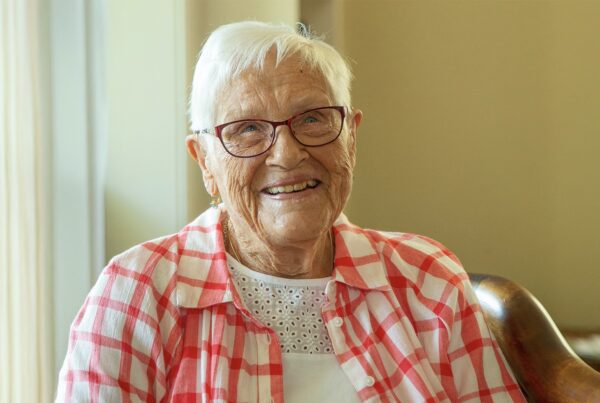A growing openness, a growing interest in Christian faith, and a growing presence of people who are really witnessing Christ—these are all the things that Patric Knaak, Serge’s Area Director for Renewal, rejoices in as he reflects on his recent time in Japan.
“This is one of the most exciting times to be involved in ministry in Japan since WWII,” Knaak says.
Yet, in a country where .5 percent identify as evangelical Christian and 2.2 percent profess any kind of Christian faith, there is also a need for people who lead ministries to be renewed in the hope of the gospel.
To help Japanese national leaders and international missionaries find Christ-centered renewal, this past February several U.S.-based Serge staff spent two weeks in Japan leading what is locally known as “Grace Weeks.”
In the U.S. these gatherings are known as Sonship Weeks.
Serving from a Place of Need
Toward the beginning of the Japan Grace Weeks, the Serge staff met to pray for each other and the people local leaders they sought to serve.
Lindsay Kimball, Serge’s Discipler Training Program Leader, says the Serge team was well aware of their limitations.
They were jetlagged and out of their element. Many of them were facing difficult discipling situations, and they weren’t quite sure how to help.
“We felt so weak and limited,” Kimball says. “These circumstances really made it clear that God is the one who transforms and changes and brings fruit. I think we all felt very dependent those two weeks.”
The team of nine Serge staff spent a week in Tokyo and a week in Nagoya serving missionaries and local church leaders.
The Grace Weeks consisted of all-day sessions including lectures, prayer time, small groups, and more.
The Serge team also provided individual mentoring for the 30-plus people who attended the events each week.
Every day, each attendee had an hour of mentoring with a Serge staff member to help apply the truths of the gospel to life.
By the end of their time in Japan, the Serge team had seen God work in amazing ways, in spite of their limitations.
“It was amazing to be along for the ride and see Him work in people,” Kimball says. “It really felt like we got the privilege of having a front seat view to what God is doing.”
The Cost of Ministry
For foreign and national workers alike, Japan is a notoriously difficult place to serve in Christian ministry.
While Japan isn’t openly hostile toward Christians, the idea of the Christian God is largely a foreign concept.
“A lot of Japanese people don’t reject Jesus because they look at [Christianity] and they see it wanting,” Knaak says. “They just don’t register Christian faith on their radar at all.”
When Japanese people do hear about Jesus, they often dismiss Christianity as a Western religion.
Japanese culture places a high value on loyalty, and many Japanese people feel that abandoning their Shinto or Buddhist traditions would be betraying their family.
This makes evangelism a slow, difficult process. Missionaries can work for years and see very little fruit.
Add that to other stressors of mission work—team conflict, standing out as a Westerner, navigating a new language and culture—and it can be a recipe for quick burnout.
“The price people pay to live and minister in dark and hard places is difficult to describe,” says Josiah Bancroft, Serge’s Director of Mission.
“People need to be able to carry God’s grace in their own hearts and lives, and be encouraged with how to do that in order to survive with some joy and sustainability.”
The Gospel Goes In
Knaak says the aim of Serge’s Grace Weeks was to encourage leaders to return daily to the truths of God’s love for them as His children, and Christ’s completed work on the cross, as their motivation for serving others.
“We wanted everyone to walk away having experienced Jesus deeper and to rely more on His grace as a result of being at the week,” he says.
Seita Sakaguchi, who is preparing to start a new church plant in Tokyo, says the combination of training and personal mentoring helped him examine how God is working in his life.
“I came away from the week more desirous of experiencing gospel renewal on a daily basis, and pursuing personal holiness in response to the joy given through the gospel,” he says.
“I hope to review the teaching regularly and seek to apply the gospel truths to my own heart. And eventually, I hope to help others experience ongoing gospel renewal in their own relationship with Jesus.”
Jo Ruck, who came to Japan with her husband in 2009, says she came into the week expecting to be challenged, but the teaching and mentoring pushed her to take a hard look at her sin and her need for God’s grace.
“I had forgotten just how much of a sinner I am. And how much I need God every day,” she says. “I feel like this time helped me to extend grace that much quicker and faster to those in my life.”
“I think this has also helped me to see just how much I can’t do this on my own,” she says. “I’m naturally a very independent person, and I’ve realized how for so long I have been simply striving on my own.”
The Gospel Goes Out
Bancroft says he had two hopes going into the Grace Weeks. One was to see “the men and women on the front lines to be strengthened by the presence of the love of God for them.”
The second is to see those individuals take the love and grace they receive from the Lord back into their areas of ministry.
Like every culture, the Japanese culture can make good things become ultimate things. For instance, Japanese culture highly values hard work and competency.
Those tendencies can bleed into ministry cultures, making it difficult to admit struggles and needs.
Yet at the same time within Japanese culture, the idea of a personal God who is powerful, humble, and loves people unconditionally is incredibly transformative.
And, as Knaak points out, helping foster gospel-centered churches is part of an even larger goal.
“Serge desires to see healthy churches flourishing in Japan,” Knaak says.
“But that’s one purpose on the way to a larger purpose—which is to see everyone in Japan reached with the message of the gospel. That only happens when churches are healthy, vibrant, attracting new people, and fostering growth in believers.”
Knaak says plans are already underway for two more Grace Weeks to be held in Japan in 2018, largely led by local leaders and conducted in Japanese.
Serge will resource and support those events—partnering with local ministries as they have since the 1990s.
However, having national leaders do most of the teaching and mentoring will help contextualize the gospel message to reach more people in Japan.
The way Knaak sees it, revival in Japan could lead to larger-scale revival. When Japanese people meet and experience God, he says, they’re willing to go to great lengths to be a light in dark places.
“I truly believe that if Christ captivated a significant portion of Japan, Japan could become a country that reaches the rest of the world,” he says. “The potential there is absolutely astounding.
For her part, Kimball says mentoring in Japan felt like a “sacred privilege.”
“Seeing how powerful our Lord is to work in people’s stories encouraged my faith,” she says.
“The gospel is moving there. It is slow and it’s hard, but there are churches talking about planting more churches. There’s Japanese leadership in churches. There are growing congregations. It’s really amazing.”






